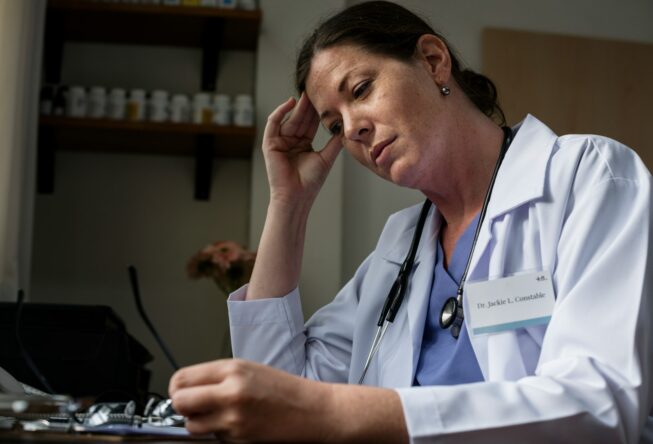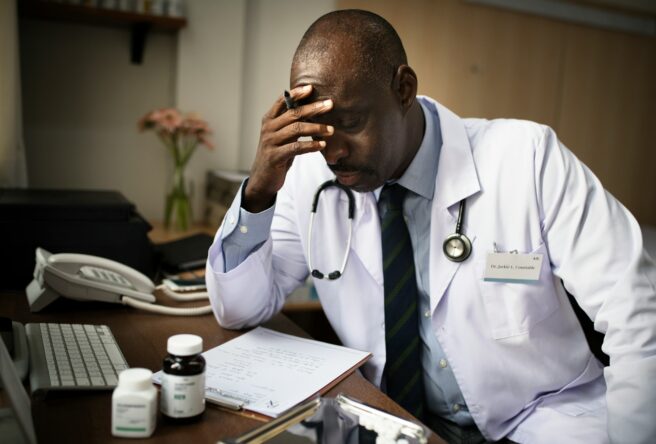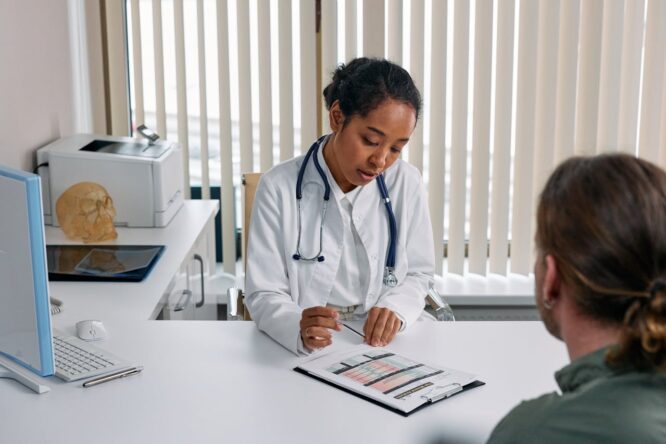GPs are stretched thin, and no matter how understanding they are, there are definitely moments they wish patients would think twice before booking.

With packed appointment lists and a mountain of paperwork, every unnecessary visit takes time away from someone who might really need that slot. It’s not about shaming people — it’s about helping everyone use the right services for the right things. So, in the spirit of being helpful (and maybe saving yourself a long wait), here are some of the more common (and non-serious) complaints your GP probably wishes you wouldn’t come in about, and where to go instead.
1. A cold you’ve had for a couple of days

We’ve all experienced the scratchy throat, runny nose, and zero energy. However, if it’s only been a couple of days, your GP can’t really do much that rest, fluids, and paracetamol won’t handle just as well. Unless you’ve got underlying health issues or your symptoms suddenly get worse, a common cold doesn’t need medical attention. It’s uncomfortable, but your immune system is usually more than capable of sorting it without a prescription.
2. Mild hay fever flare-ups

If you’ve lived through a British spring or summer, you’ve probably been hit with itchy eyes, sneezing fits, or that foggy-headed feeling. However, unless it’s intense or affecting your breathing, your local pharmacy has you covered. Over-the-counter antihistamines, nasal sprays, and eye drops usually do the job. If nothing works after a solid trial or your symptoms are severe year-round, then it might be time for a GP, but it’s rarely step one.
3. A single pimple or minor breakout

Getting a spot before a big event is annoying, but it doesn’t need a doctor’s opinion. Acne that’s persistent or causing distress is worth flagging, but a lone zit or even a short breakout will almost always sort itself out. GPs often recommend starting with simple skincare steps first, like gentle cleansers and spot treatments. If things don’t improve, or you’ve tried it all, then yes, they’re there to help, but the occasional breakout isn’t an emergency.
4. A sick note for just a day or two off work

If you’ve only been off work for a couple of days, you don’t need a note. Legally, you can self-certify for up to seven calendar days, and GPs wish more people knew that. Coming in for a sick note on day two not only wastes your time, it takes up an appointment slot that someone else might really need. Unless your employer specifically requests one (which is rare), there’s no need to go in just for a form.
5. Small cuts, grazes, or blisters

Most minor skin injuries heal on their own with a little TLC—wash, dry, cover, and let your body do its thing. Unless there’s a sign of infection, you don’t need medical backup. Pharmacists can give you advice on which dressings or creams to use, and when to escalate if it doesn’t improve. GPs only really need to step in if it’s clearly getting worse or very painful after a few days.
6. Toenail fungus or athlete’s foot

These are definitely unpleasant, but also super common and very treatable without a trip to the GP. Antifungal creams and treatments are easy to get from the chemist, and they usually work if used consistently. Unless the infection is spreading badly, not responding to anything, or causing pain, there’s no real need to go through the GP. They’ll likely just point you to the exact same treatments the pharmacy stocks anyway.
7. A headache that’s come and gone

One-off headaches that pass with rest, hydration, or basic pain relief usually don’t require medical input. They’re often caused by stress, dehydration, or poor sleep, all of which are annoyingly common but not dangerous. Recurring or very intense headaches that disrupt your daily life are a different story—those are worth discussing. But one bad day with a headache doesn’t need a GP check unless it comes with worrying symptoms like vision changes or vomiting.
8. Asking for antibiotics “just in case”

Antibiotics only work on bacterial infections, and most minor illnesses like colds, sore throats, or flu-like symptoms are caused by viruses, so asking for them “just in case” puts your GP in an awkward spot. They want to help, but overprescribing antibiotics can lead to resistance, which is a real public health problem. If your GP says no, it’s not that they’re being stingy; it’s because they’re thinking long-term, for you and everyone else.
9. Mild food poisoning that’s easing up

That dodgy takeaway or suspicious leftover meal can definitely ruin your day, but most cases of food poisoning clear up within 24 to 48 hours with rest and hydration. If you’re still feeling rough after a couple of days, have blood in your stool, or can’t keep anything down, then it’s time to get help. Otherwise, your GP’s advice will likely match what you’re already doing: rest, fluids, and bland food.
10. Bruises that look scary but don’t hurt

Bruises can be dramatic, especially on pale skin or after a bump you didn’t notice. However, if it’s not painful, swelling, or spreading strangely, there’s usually no cause for concern. GPs often get shown bruises that just need time to fade. If you’re bruising very easily or frequently with no explanation, then yes—worth checking. However, one-off bruises that change colour normally? Not urgent.
11. Dry lips, flaky skin, or mild dandruff

These are common annoyances, especially during seasonal changes or stress. That being said, unless there’s a rash, infection, or major discomfort, your GP’s likely response will be: moisturise, hydrate, and try some pharmacy treatments first. Persistent skin issues can absolutely be worth a GP’s time, but dry skin on its own, especially if it clears up with a bit of care, doesn’t usually need a medical fix.
12. Symptoms you Googled and convinced yourself you’re experiencing

It’s totally normal to check things online before seeing your GP, but reading off search results during your appointment isn’t the best use of time. It can feel like you’re second-guessing their diagnosis before they’ve even started. They appreciate curious, informed patients, but it’s better to bring your questions or concerns clearly and let them do their thing. After all, they’ve seen more real-life cases than any search engine has.
13. Cosmetic complaints that aren’t medical

Skin tags, mild acne scars, or moles that haven’t changed shape might be annoying, but GPs aren’t cosmetic consultants. If it’s not painful, infected, or suspicious-looking, they likely can’t treat it under NHS guidelines. These types of concerns are often better handled by dermatologists or private cosmetic services. It’s not that GPs don’t want to help—they’re just limited in what they’re allowed to do within their remit.
14. Booking “just for a chat” when nothing’s wrong

Your GP does care — truly. But with ten-minute appointments and packed waiting lists, they can’t be the go-to for general reassurance when nothing specific is wrong. If you’re feeling low, anxious, or overwhelmed, there are services that specialise in mental health and emotional support. GPs can help you access those, but they’re not meant to be the starting point for every check-in, especially if other people are waiting with urgent needs.




